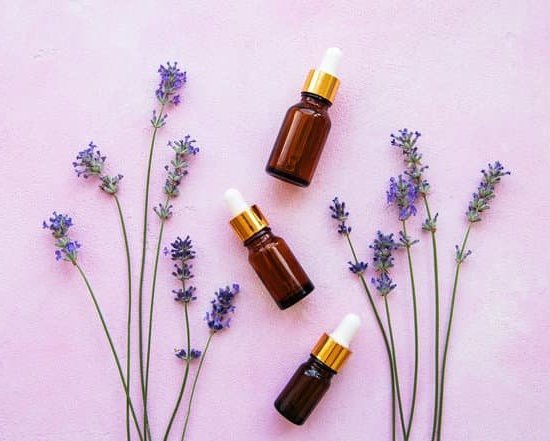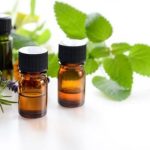Aromatherapy has gained popularity for its potential health benefits, but the question remains: is aromatherapy safe for lungs? This holistic practice involves using essential oils to promote physical and emotional well-being. While aromatherapy is generally considered safe, there are important considerations when it comes to lung health.
Before delving into the safety of aromatherapy for lungs, it is crucial to understand how our respiratory system functions. The lungs play a vital role in oxygenating our blood and removing carbon dioxide from the body. Maintaining lung health is essential for overall well-being, making it important to consider any potential risks associated with inhaling essential oils.
While aromatherapy can offer a range of benefits, there are some potential risks to be aware of when it comes to lung health. Inhaling concentrated essential oils directly or improperly may cause irritation or damage to the respiratory system. Research on the effects of essential oil inhalation on lung health is ongoing, highlighting the need for caution when using aromatherapy for this purpose.
Understanding the Respiratory System
The respiratory system plays a crucial role in our overall health, as it is responsible for the exchange of oxygen and carbon dioxide in our bodies. The lungs, in particular, are vital organs in this system, working tirelessly to ensure we receive an adequate oxygen supply for proper bodily functions. Given the importance of lung health, many individuals wonder whether aromatherapy is safe for their respiratory system.
Inhalation is one of the most common methods of using essential oils in aromatherapy. When essential oils are inhaled, they enter the lungs and are absorbed into the bloodstream, affecting various physiological processes.
However, some people may be concerned about the potential risks associated with inhaling essential oils directly into their lungs. It is important to consider that not all essential oils are suitable for inhalation due to their chemical composition, which can cause irritation or even harm to the respiratory system if used incorrectly.
Research on Aromatherapy and Lung Health
Studies have been conducted to assess the impact of inhaling essential oils on lung health. While some research suggests that certain essential oils may have benefits for respiratory conditions such as asthma or bronchitis, other studies have raised concerns about the potential negative effects of inhaling essential oils. For instance, inhaling certain essential oils at high concentrations or for prolonged periods could irritate the airways and lead to respiratory issues.
Guidelines for Safe Use of Aromatherapy
To ensure that aromatherapy is safe for your lungs, it is recommended to follow some guidelines when using essential oils for inhalation. First and foremost, always dilute essential oils with a carrier oil before inhaling them to reduce the risk of irritation.
Additionally, limit the duration and frequency of inhalation sessions to prevent overexposure. Finally, if you have any pre-existing respiratory conditions or concerns about using aromatherapy for lung health, consult with a healthcare professional before incorporating it into your wellness routine.
Potential Risks of Aromatherapy for Lungs
Aromatherapy, a holistic healing treatment that utilizes essential oils to promote physical and emotional well-being, is gaining popularity for its various benefits. Individuals often use aromatherapy to alleviate stress, improve sleep quality, and boost the immune system. However, when it comes to the safety of aromatherapy for lungs, some concerns need to be addressed.
The respiratory system is a crucial part of our body that enables us to breathe and take in oxygen for survival. The lungs play a vital role in this process by bringing oxygen into the bloodstream and removing carbon dioxide from the body. Therefore, maintaining lung health is essential for overall well-being. This raises the question: is aromatherapy safe for lungs?
While aromatherapy can provide numerous benefits, there are potential risks associated with inhaling essential oils directly into the lungs. Some essential oils may contain compounds that can irritate or inflame the respiratory system, leading to breathing difficulties or allergic reactions in sensitive individuals. Research has shown that prolonged exposure to certain essential oils may even cause damage to lung tissues over time. It is important to use caution when incorporating aromatherapy into your wellness routine.
- Avoid inhaling essential oils directly from the bottle
- Do not use undiluted essential oils on your skin or inhale them
- Consult with a healthcare professional before using essential oils if you have pre-existing lung conditions
It’s crucial to take safety precautions when using aromatherapy for lung health. Diluting essential oils properly before use and following recommended guidelines can help minimize any potential risks. By being mindful of how you use essential oils and taking necessary steps to ensure safety, you can enjoy the benefits of aromatherapy without compromising your lung health.
- Always purchase high-quality, pure essential oils from reputable sources
- Use a diffuser to disperse essential oil vapors into the air instead of direct inhalation
- Avoid using large amounts of essential oil at once and take breaks between sessions
Safety Precautions for Aromatherapy
Aromatherapy, when practiced with caution and mindfulness, can be safe for the lungs and overall respiratory system. However, it is essential to be aware of potential risks and take necessary safety precautions to reap the full benefits of using essential oils.
One important consideration is that some individuals may have sensitivities or allergies to certain oils, which could trigger adverse reactions in the respiratory system. Therefore, it is crucial to perform a patch test before using any new essential oil and to consult with a healthcare provider if there are any concerns.
Proper dilution of essential oils is another key safety measure when using aromatherapy for lung health. Undiluted essential oils can be too potent and may cause irritation or other negative effects when inhaled. It is recommended to dilute essential oils with a carrier oil, such as coconut or jojoba oil, before applying them topically or using them in a diffuser. This helps to reduce the risk of respiratory irritation and ensures a gentler experience when inhaling the aroma.
Furthermore, practicing moderation in aromatherapy usage is advisable to prevent overexposure to essential oils, which could potentially harm the lungs. Following recommended guidelines on how often and for how long to use certain oils can help maintain respiratory health while enjoying the benefits of aromatherapy. By being informed about proper usage and considering individual sensitivities, aromatherapy can indeed contribute positively to lung health without compromising safety.
| Aromatherapy Safety Tips | Importance |
|---|---|
| Perform patch tests before use | Avoid adverse reactions |
| Dilute essential oils properly | Reduce risk of irritation |
| Practice moderation in usage | Maintain lung health |
Benefits of Aromatherapy for Lungs
Aromatherapy has gained popularity for its potential health benefits, including promoting relaxation, improving sleep quality, and reducing stress and anxiety. When it comes to lung health, aromatherapy can also offer numerous benefits. While some may question whether aromatherapy is safe for lungs, when used correctly and with caution, essential oils can actually support respiratory health.
Improves Respiratory Function
One of the key benefits of aromatherapy for lungs is its ability to improve respiratory function. Certain essential oils, such as eucalyptus and peppermint, have been shown to help clear congestion and open up the airways. By inhaling these essential oils through diffusion or steam inhalation, you can promote easier breathing and alleviate symptoms of respiratory conditions like asthma or bronchitis.
Reduces Inflammation
In addition to improving respiratory function, some essential oils have anti-inflammatory properties that can help reduce inflammation in the lungs. Oils like lavender and chamomile have soothing effects that can calm inflamed airways and promote overall lung health. By incorporating these essential oils into your aromatherapy routine, you may experience a decrease in lung inflammation and associated symptoms.
Purifies the Air
Another benefit of aromatherapy for lungs is its ability to purify the air. Certain essential oils have antimicrobial properties that can help kill harmful bacteria or viruses in the air. By diffusing oils like tea tree or oregano, you can create a cleaner environment for your lungs to breathe in. This can be especially beneficial for individuals with compromised immune systems or those prone to respiratory infections.
Overall, when practiced safely and responsibly, aromatherapy can be a valuable tool for supporting lung health. Incorporating essential oils known for their respiratory benefits into your daily routine may help improve breathing, reduce inflammation, and create a cleaner environment for your lungs to thrive in. Remember to always dilute essential oils properly and consult with a healthcare professional if you have any concerns about using aromatherapy for lung health.
Best Essential Oils for Lung Health
Aromatherapy has gained popularity for its potential benefits on overall health and well-being, including respiratory health. When it comes to using essential oils for lung health, it is important to choose the right ones that are safe and effective. Understanding which essential oils are best suited for promoting lung health can enhance the benefits of aromatherapy.
Here is a list of some of the best essential oils known for their positive effects on the respiratory system:
1. Eucalyptus: Known for its ability to support clear breathing, eucalyptus oil can help reduce symptoms of congestion and promote easier breathing.
2. Peppermint: With its cooling and invigorating properties, peppermint oil can help open up airways and support overall respiratory function.
3. Tea Tree: Often used for its antimicrobial properties, tea tree oil can help combat respiratory infections and promote a healthy immune response.
Using these essential oils in aromatherapy blends or diffusing them into the air can help support lung health and improve breathing. It is important to note that proper dilution and moderation should be practiced to ensure safety when using essential oils for respiratory purposes.
Whether you choose to inhale these essential oils through a diffuser, steam inhalation, or topical application, incorporating them into your daily routine can provide natural support for your lungs. However, it is always recommended to consult with a healthcare professional before starting any new aromatherapy regimen, especially if you have pre-existing respiratory conditions. Remember that while aromatherapy can offer many benefits, ensuring safety is key when using essential oils for lung health.
Inhalation Techniques for Aromatherapy
Aromatherapy, when done correctly, can provide numerous benefits for overall health and well-being, including respiratory health. However, it is essential to consider safety precautions when using aromatherapy for lung health. One common question that arises is, “Is aromatherapy safe for lungs?” The answer lies in the proper use of essential oils and understanding the potential risks associated with inhaling them.
Inhaling essential oils directly impacts the respiratory system as the aromatic compounds are absorbed into the lungs and bloodstream. While some essential oils have been shown to support respiratory function and alleviate symptoms such as congestion and inflammation, improper use or overuse can lead to adverse effects on lung health. Research suggests that inhaling certain essential oils in excessive amounts or without proper dilution can irritate the respiratory tract and cause breathing difficulties in sensitive individuals.
To ensure the safe use of aromatherapy for lung health, it is crucial to follow specific guidelines. When using essential oils for inhalation, always dilute them with a carrier oil or water to prevent throat or lung irritation.
Additionally, consider the quality of essential oils as synthetic or low-quality oils may contain harmful chemicals that can be detrimental to respiratory health. Using a diffuser is also a popular method for safely inhaling essential oils without direct contact with sensitive areas like the skin or lungs.
Overall, while aromatherapy can offer benefits for lung health when used properly, caution should be exercised to prevent any potential risks. Consulting with a qualified healthcare practitioner or aromatherapist can provide personalized recommendations for incorporating aromatherapy into your wellness routine safely.
| Benefits of Proper Aromatherapy | Safety Precautions Needed |
|---|---|
| Supports respiratory function | Diluting essential oils |
| Alleviates congestion and inflammation | Using high-quality oils |
| Reduces breathing difficulties | Avoiding overuse of essential oils |
Conclusion
In conclusion, the question “Is aromatherapy safe for lungs?” is a valid one that deserves careful consideration.
While aromatherapy can offer numerous benefits for overall health and well-being, it is important to be aware of the potential risks associated with inhaling essential oils, especially when it comes to lung health. Research has shown that improper use of essential oils or exposure to certain oils without proper dilution can have negative effects on the respiratory system, leading to irritation or even more serious issues.
However, with the right safety precautions in place, aromatherapy can indeed be safe for lungs. Diluting essential oils properly, using them in moderation, and being mindful of any allergies or sensitivities are crucial steps in ensuring a positive experience with aromatherapy. It is also advisable to consult with a healthcare professional before starting any new aromatherapy regimen, especially if you have pre-existing respiratory conditions.
Ultimately, when practiced safely and responsibly, aromatherapy can provide valuable support for lung health. The benefits of certain essential oils on respiratory function have been well-documented through research studies and personal testimonials. By following guidelines for safe use and choosing the best essential oils for lung health, individuals can enjoy the therapeutic effects of aromatherapy while prioritizing their respiratory well-being.
Frequently Asked Questions
Are Fragrance Oils Safe for Lungs?
Fragrance oils can potentially pose risks to lung health, especially for individuals with existing respiratory conditions such as asthma or COPD. Inhaling these oils directly into the lungs may irritate airways and trigger symptoms like coughing or shortness of breath.
Is Aromatherapy Good for COPD?
Aromatherapy can offer some benefits for individuals with COPD by promoting relaxation, reducing stress, and improving sleep quality. However, it is crucial to use caution when using essential oils to avoid triggering potential respiratory issues or exacerbating symptoms of COPD.
Are Aromatherapy Diffusers Safe?
Aromatherapy diffusers are generally considered safe when used properly and in well-ventilated areas. It’s important to follow manufacturer instructions, dilute essential oils correctly, and be mindful of potential sensitivities or allergies that could be triggered by diffused oils.

Are you looking for a natural way to improve your health and wellbeing?
If so, aromatherapy may be the answer for you.





